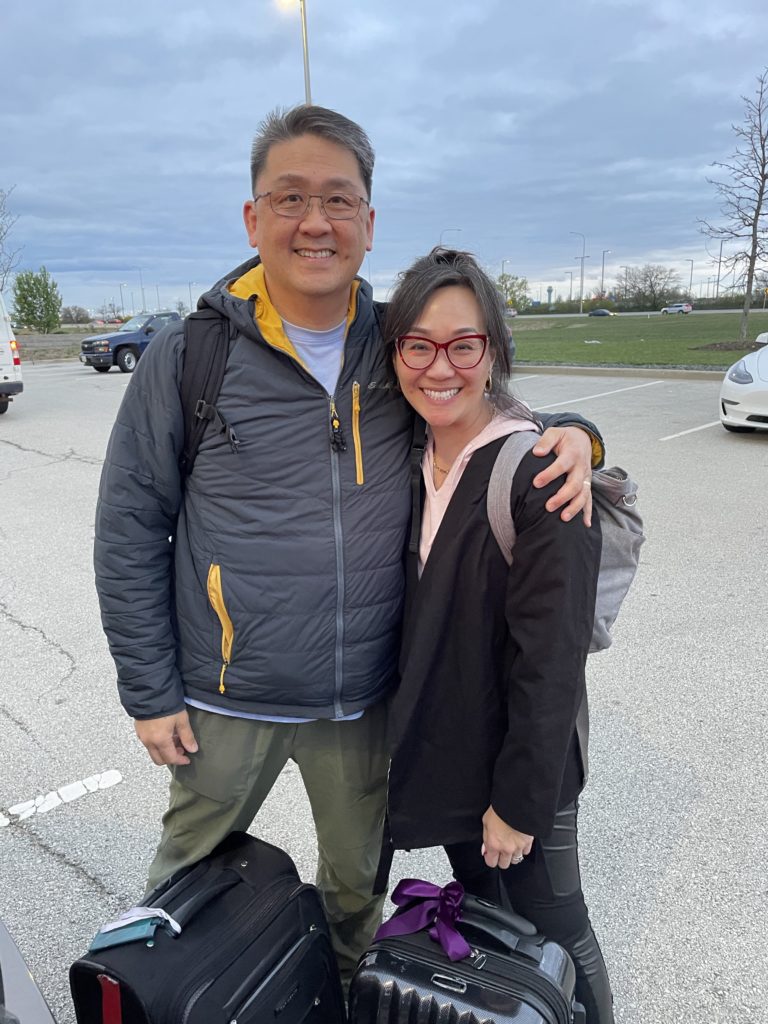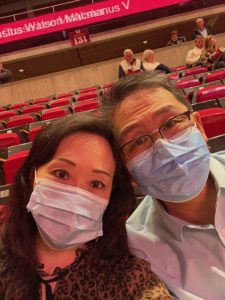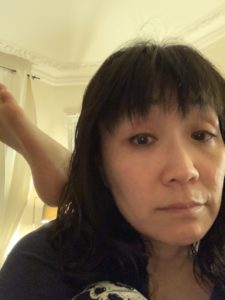My Dear Readers,
Peter and I are about to celebrate 30 years of marriage. We are headed off for a week in Paris and London without the kids and without my computer. This is serious.
Here’s my list of 30 things I’ve learned during 30 years of marriage.
- Marriage isn’t good or bad or even the ideal because people aren’t good or bad and we are never the ideal. We are complicated and nuanced and so is marriage.
- Sometimes you go to bed angry because sleep is important. Staying awake angry won’t solve things, especially if it’s the same thing that’s been festering over and over. Go to sleep, and find a therapist.
- If you’re so angry you can’t stand the sound of your spouse’s breath, you or your spouse should sleep in another room.
- Because of #3, invest in a comfortable couch or guest bed. Better yet, buy that king size bed so there is space for the days you’re not angry but just need space.
- Love isn’t a feeling. It’s a verb. It’s action. Action takes work.
- I am not lovable when I’m hungry. My dad gave Peter this advice when we left for our honeymoon: Feed Kathy and she will be happier.
- Do your own inner work. Your life partner isn’t your therapist, even if that person happens to be a therapist. Mine is my dentist and can actually fix my teeth but isn’t responsible for brushing and flossing my teeth.
- Which means you can’t fix your partner. You can’t love them to mental health. You can make a way for them.
- For all the US reality shows, this society is not built for healthy marriages. It is built for whitewashed fairytales.
- It’s ok to want and create fairytale moments. Look, as you are reading this post, Peter and I are flying off to Paris. FAIRYTALE. But the moment is fleeting because the reality is that I have a sinus infection with lots of congestion. We are flying economy, and I am super proud that we bought roundtrip tickets under $500 each. Make sure the moment is grounded in reality.
- My friend Tricia asked me what I like about traveling with Peter, and that was a great question. The lesson? Friends who ask you about your marriage keep you honest and real. (I like traveling with Peter because he is up for just about anything and we enjoy trying things the other person is really excited about.)
- You don’t have to like the same things, but you should be respectful of each other’s interests. Peter used to run and train for races. At some point I asked him to reconsider the hours he put into training or pay to take care of some of things he was in charge of around the house. I spent a lot of money on scrapbooking supplies, and then when Peter saw the end products he didn’t question the investment. 😉
- You can teach a dog new tricks. I am the dog. (I was actually born in the year of the dog.) Because of Peter I have learned to drink beer, watch a variety of genres of film, and tolerate some classic rock.
- You don’t have to do everything together all of the time, but find things you do enjoy doing together – not things you have to do like the dishes or laundry but things like going to the library and browsing aspirational reading and viewing or occasional trips to a thrift shop. Yes, those are things we like to do together.
- Money doesn’t buy happiness, but it does provide access to healthcare, housing, food, etc. and those early years of marriage were full of stress as we were paying of student loans, credit card debt, and failing at saving. This is related to #9.
- Growing up in church and an immigrant home did not set me up well for a healthy understanding of sexuality and the role of sex in a healthy marriage. Sex is more important than is preached about and less important than it is preached about. It’s not a dial you turn on at marriage.
- Menopause really messed up my sex drive. Perimenopause messed up my sex drive. Having children messed up my sex drive.
- Good sex in a marriage is important, and “good” has to be agreed upon between partners. That said, the “in sickness and in health” part really comes into play with sex so it helps to shed purity culture notions of sex and get creative and playful and, if you have young children, quick. Good sex is mutual and sometimes you take turns. You can also take matters in your own hands, or each other’s.
- My spouse doing the dishes is not foreplay. Folding laundry isn’t a turn on. Peter vacuuming the one carpet we haven’t isn’t sexy. If that’s your thing, awesome, but it’s not mine anymore.
- All that talk about sex is really about communication. Over communicate. Conversations in my head do not count.
- The big and little things matter, but you can only hold them against your spouse if you’ve communicated them and agreed to action. I can’t be angry at Peter for not doing “x” for my birthday if I have not told him that is what I would like. I learned this by being angry at Peter for not reading my mind. This is expanding on #19.
- Learn to apologize AND repair. You can say you’re sorry but words don’t matter if the behaviors and actions never change. Sometimes the apology comes years later, but even then we have to decide if we will work together to repair the harm.
- Learn to let go. I got tired of making the bed so I started making my side of the bed. Now we each have our own blankets, and it’s what it is.
- Stand your ground. I thought I was being helpful when I would reorganize Peter’s closet or tidy up his office. It was not, and he told me so. I tried for a few years to convince both of us he was wrong. I was wrong. He just makes sure his closet door is always closed.
- Small gestures count. Peter put the kimchi in a small dish and made Shin ramen for me the other night.
- Big gestures count. A few years ago we made it to Mount Rushmore because Peter REALLY wanted to see it. Many of you can guess how I feel about that place but it was super fun to watch him take it all in. (If you’ve never been in person, it really is something.
- MUTUAL respect in public and in private is important.
- I still close the door to the bathroom even though I know he can hear everything. It’s just a me thing.
- I am glad I kept my “maiden” name, and I still love getting junk mail addressed to Peter Khang because the patriarchy is still hard at work.
- Time is very weird. I can remember so much of our wedding day – the cake topper went awol and we didn’t know the guy who caught the garter, and I can’t believe it’s been 30 years. It feels like yesterday and a lifetime ago. I’m so grateful we made it to 30 because if I’m honest I wasn’t always sure we would make it. But here we are, Peter. Here we are. I love you.




